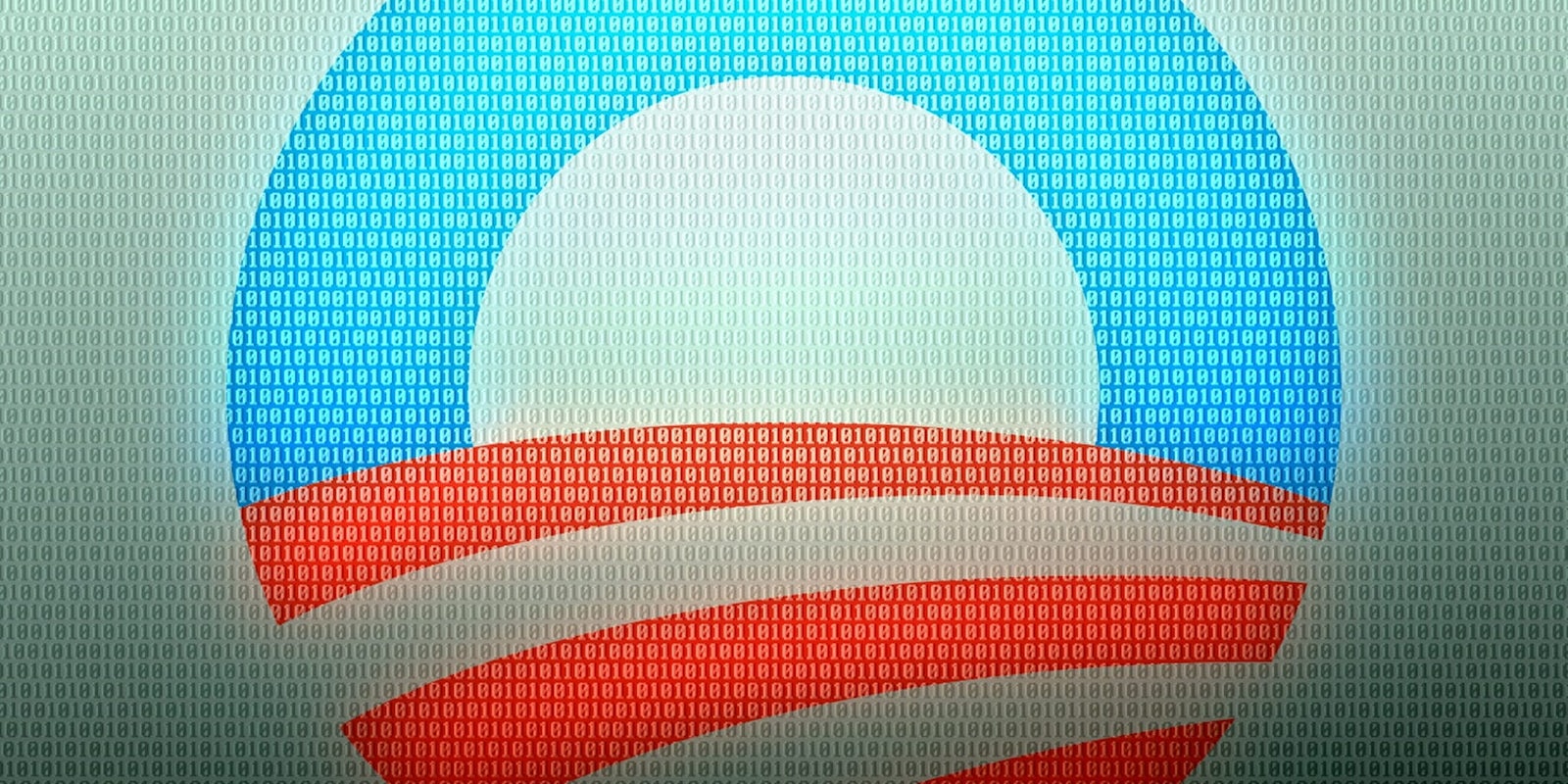President Barack Obama will not yet wade into the fierce public battle over encryption, his administration has decided.
Several of Obama’s top appointees, including FBI Director James Comey, have been pushing tech companies, like Apple and Google, to weaken the encryption in their products by inserting special doorways to ensure that investigators can access communications when they have a warrant. The White House convened meetings to discuss ways to balance privacy and security concerns with law-enforcement needs, but administration officials rejected the proposed solutions as politically toxic and technically unfeasible.
Liberal and conservative political groups, security experts, and tech companies have pressured Obama to publicly reject so-called “backdoors” in commercial encryption, hoping that the president would finally put an end to the decades-long battle over encryption that has set privacy groups against intelligence officials.
At a Senate Homeland Security and Governmental Affairs Committee hearing on Thursday, Comey revealed that the president had chosen not to heed those calls—but that he wouldn’t push to mandate backdoors, either.
“The administration has decided not to seek a legislative remedy now, but it makes sense to continue the conversations with industry.”
“The administration has decided not to seek a legislative remedy now,” he said, “but it makes sense to continue the conversations with industry.”
President Obama reportedly decided not to change the status quo on encryption at an Oct. 1 meeting with his Cabinet.
National Security Council spokesman Mark Stroh told the Daily Dot that the government is “actively engaged with private companies to ensure they understand the public safety and national security risks that result from malicious actors’ use of their encrypted products and services.”
Joseph Hall, chief technologist at the Center for Democracy and Technology, a leading Internet-privacy group, expressed his disappointment at the president’s decision.
“It’s hard to not see this as further delay,” he said in an email to the Daily Dot. “We’ve been here before.” He noted a 1998 New York Times story about the FBI “retreat[ing] from legislation to give law enforcers access to encrypted computer data and communications.”
“It’s good if the executive [branch], as Comey states, has recognized (again) that any legislative solution is a non-starter,” Hall said. “I’m deeply troubled that they seem to be trying to accomplish the same goals through arm-twisting of companies to voluntarily weaken their security and encryption.”
There is little evidence that encryption is a serious problem for investigators. Asked to estimate in how many cases encryption had stymied his agents, Comey told the Senate committee, “Probably the best number I can give in an open setting is dozens.”
Tech companies have said that they understand these risks but remain vigorously opposed to weakening their encryption. Apple CEO Tim Cook has been particularly vocal on this point. At an Electronic Privacy Information Center awards dinner in June, Cook blasted Comey’s demands for backdoors, saying, “Weakening encryption or taking it away harms good people who are using it for the right reason.”
Cook told NPR on Oct. 1, the same day Obama made his decision, that “any backdoor means a backdoor for bad guys as well as good guys. And so a backdoor is a nonstarter.”
Congress has taken note of the Obama administration’s encryption trepidation. Senate Judiciary Committee Chairman Chuck Grassley sent a letter to Deputy Attorney General Sally Yates on Thursday asking her to brief his staff about the Justice Department’s conversations with tech companies. A Justice Department spokesman said that the department was “reviewing” Grassley’s letter.
“It’s time for the administration to demonstrate global leadership and unequivocally put us past this narrative of going dark vs. going bright,” said Hall. “We need a solid foundation on top of which we can undergird global cybersecurity.”
Illustration by Max Fleishman


